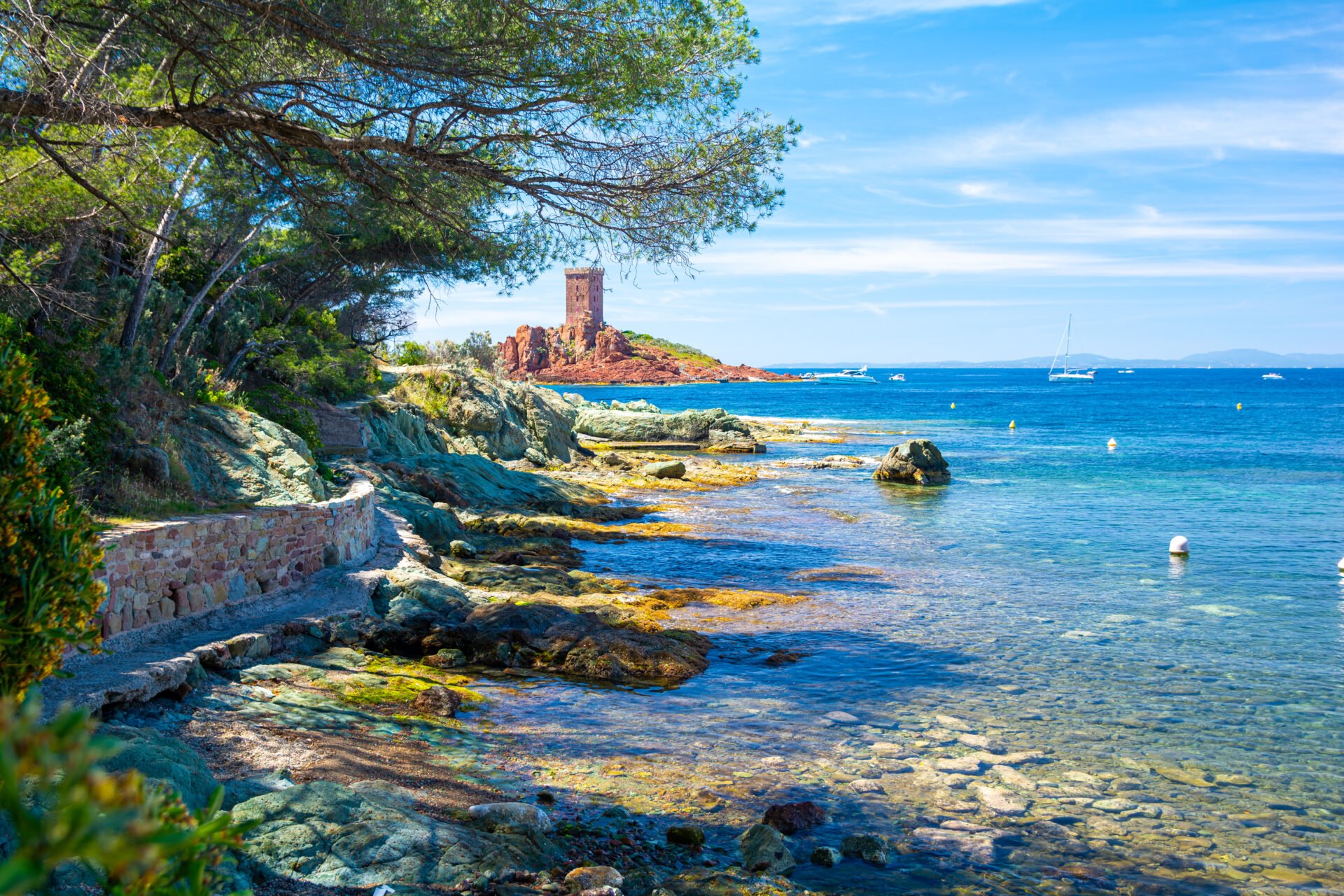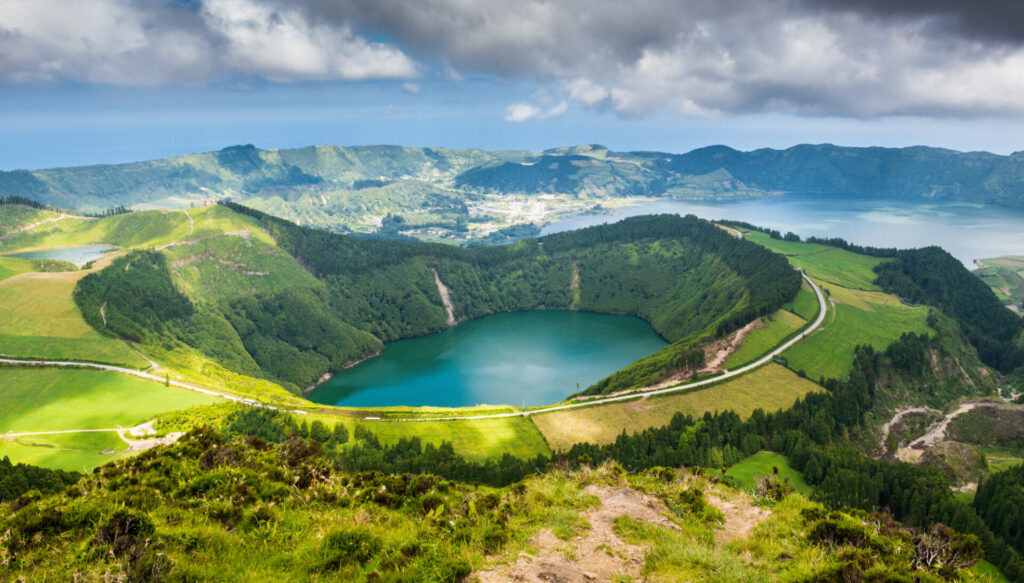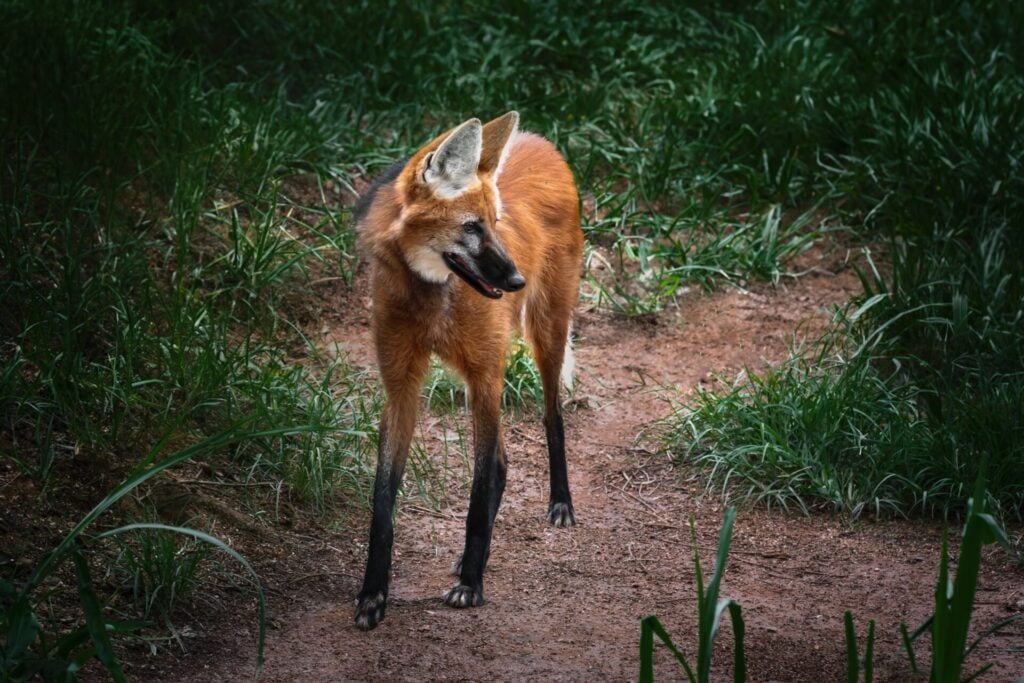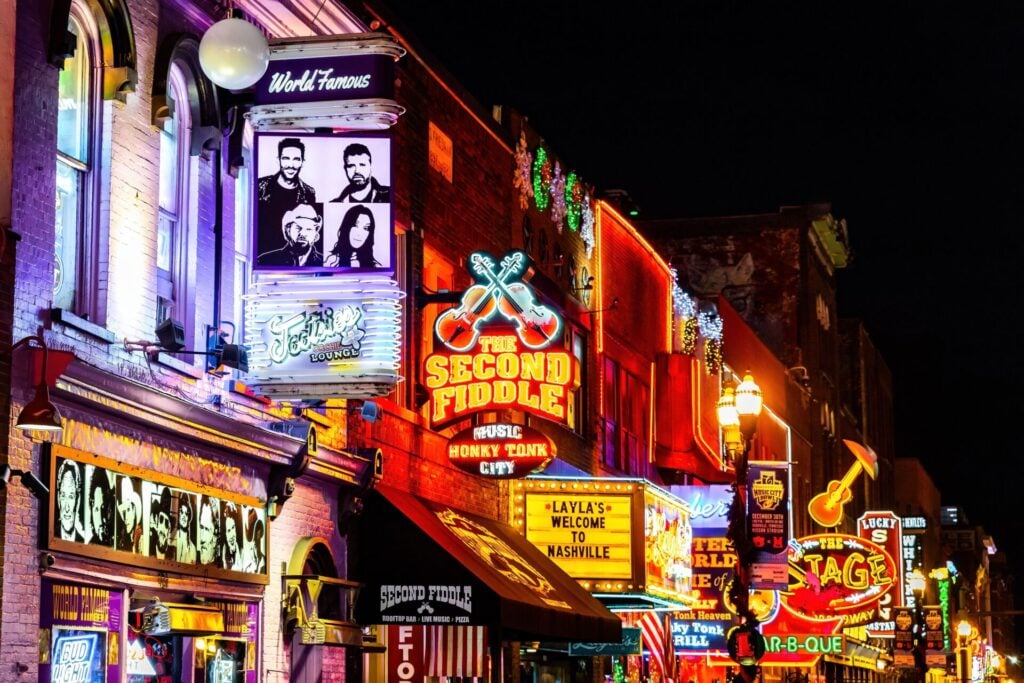I’m walking part of the Route Napoléon in Provence, the path Napoléon Bonaparte took on his return to France from his exile in Elba in 1815 to win over the French people and military, and I’m channelling my own inner Emperor – standing tall(er) and puffing out my chest with pride. I may not have won any battles, but I’ve scaled a few peaks and discovered a new kind of holiday – a retreat that takes us away from our nine-to-five world and puts us back in touch with nature, whilst respecting the planet. It feels like a win-win-win.
Right on cue, birdsong fills the air and the breeze wafts over me as I stop to admire the 360-degree view, from the sea on the Côte d’Azur in the south of France to the snow-capped Alps and – further afield – Italy.
I’m on a hiking and gastronomic retreat with Provençal Adventures, a new venture set up by Remi Dubois, a Londoner with deep French roots. Keen to showcase the area of eastern Provence he grew to love as a child when he visited his grandfather, Remi now offers retreats at his family’s villa, a converted farmhouse 600m above sea level near the village of Seillans.
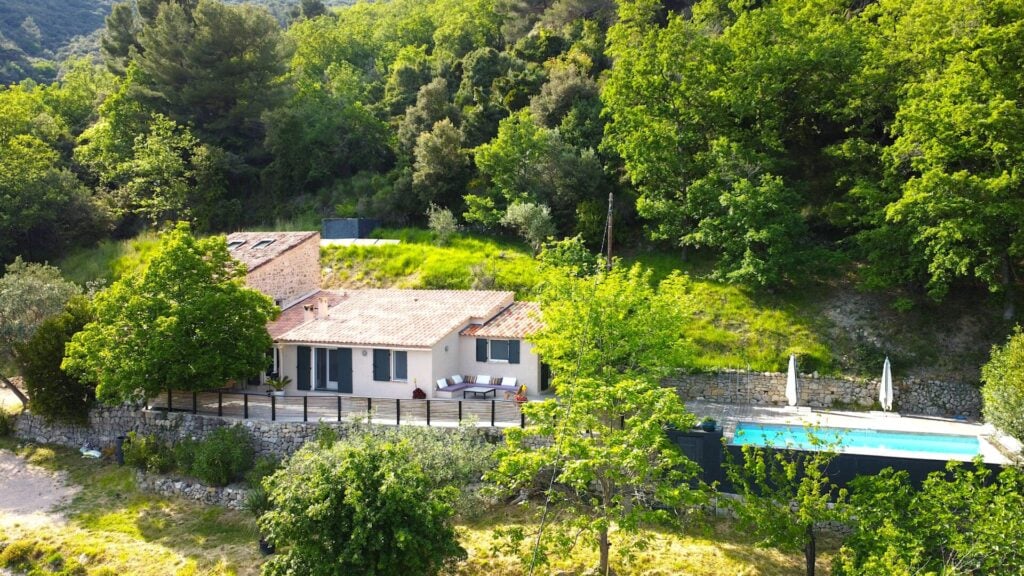
But if you hear the word ‘retreat’ and imagine yourself sitting cross-legged in a yoga pose, drinking only green juices and observing silence, think again. There’s nothing abstemious about these retreats. Yes, you retreat from your everyday life, but you also get to know the real Provence, wallow in her nature, hike her paths, mingle with her people, indulge in her delicious food, inhale her mountain air and take some time out be mindful, contemplative and appreciative.
Guests open the shutters in the morning to find deer grazing a few feet away while at at dusk owls twit-twoo them to sleep. In the night wild boar can be heard, rootling around outside
It sounds wholesome – and it is. Respect for the planet and its people underpins everything Provençal Adventures is about, from the single car Remi uses to collect all his guests from Nice Airport in one fell swoop and the solar panels on the villa, to the nature-based activities he plans, the support he gives to neighbouring businesses and producers, and the local workers he employs when needed.
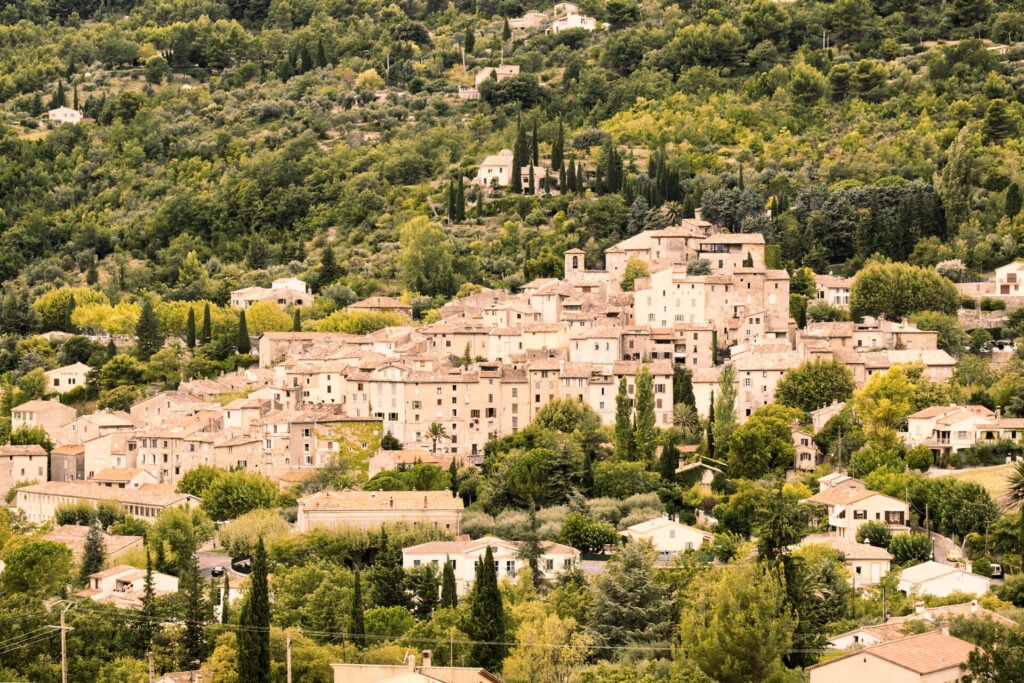
The villa is surrounded by fruit trees – depending on the season, you might find fresh figs, plums, mulberries, cherries and lemons. The wild forest behind the villa stretches for miles and there are no electric fences to keep animals out – guests open the shutters in the morning to find deer grazing a few feet away while at at dusk owls twit-twoo them to sleep. In the night wild boar can be heard, rootling around outside.
Through Canyons and Caves
It’s immersed in this nature that our six-strong group – a mixture of writers, journalists, a tutor and a sommelier, aged from early 20s to mid-60s – ventures out to climb those mountains. We bond on our very first hike on never-ending paths as we head towards the summit of Lachens Mountain. At 1715m, it’s the highest point of the Var department and well worth the three-hour skywards slog when we admire the view: in the very far distance, the island of Corsica beckons.
Tippety-tapping our hiking poles across stony paths, we reach fairytale woodland with dingly dells and stepping stones that test our nerves, as the river rushes by below.
The next day, our hearty group is in the Gorges du Blavet, where a series of canyons are carved into iron-rich volcanic rock. Tippety-tapping our hiking poles across stony paths, we reach fairytale woodland with dingly dells and stepping stones that test our nerves, as the river rushes by below.
And our final hike is the Route Napoléon, another uphill challenge with the odd, unexpected breather – a honey seller here, and a slithering snake there. We chug on to the red volcanic rocks of the Esterel massif and the Muéron cave, with its impressive archway entrance. As always, lunch is a welcome break on these hikes and we throw off our layers and tuck into baguettes, accompanied by yoghurts, fruit, energy bars, biscuits and juices, often in silence, admiring the views.

But it isn’t all hiking. Back bat the villa there’s plenty of downtime. Stylishly renovated by Remi and his mum, Ilona, an interior designer, our base is a maze of sweet, stone-walled rooms, including a beamed kitchen/diner, which is the hub, and a comfy sitting room.
I’m travelling with my husband Ian and our spacious double bedroom is up some steps at the back of the villa and flooded with light, thanks to two skylights made for star-gazing.
The gastronomy at the retreat is the stuff of foodies’ dreams. Post showers, we gather on the swimming pool terrace for aperitifs, where delicious treats such as mackerel rillettes with pickled cucumber are served one night, olive tapenade the next. They’re accompanied with the perfect sundowners, earning a thumbs up from the sommelier in our party.
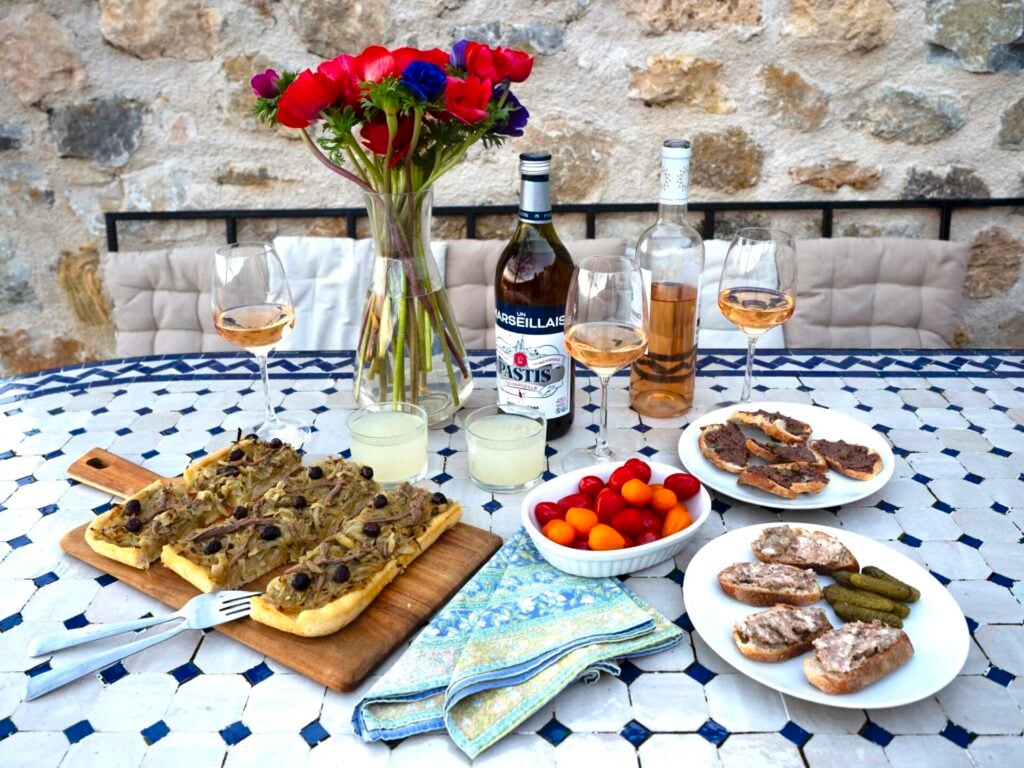
Then there’s dinner, with green lentils, aromatic stews, and ratatouille. Desserts are to die(t) for – chocolate mousse and strawberry tart are just two we savour. This isn’t one of those retreats where you’re urged to shun sugar and stimulants – we’re encouraged to relish our food and drink, and from our morning coffee to our very last nightcap, we don’t let the side down.
Provence Shows Its Wild Side
When we’re not hiking and feasting, we’re out sight-seeing around this part of Provence. One day we drop by the largest of the hill villages – Fayence, where the market stalls sell bags, quality linens, jewellery, crafts, fragrant herbs and sun-ripened fruit and vegetables, all beautifully arranged. With a coffee and a prime spot at the Bar des Campagnes, we watch the world go by. Another day we pop back to Fayence for an evening meal at the quirky Le France restaurant.
Medieval Mons – the highest village in Provence at 814 metres – is all cobbled streets and tucked-away alleys, perfect for an al fresco lunch on a wraparound balcony at L’Auberge Provençale. Here the ancient houses have wrought-iron signs depicting the trade of former inhabitants – we spot the barber, the blacksmith and the tailor.
A flock of Ouessant sheep fertilise the vineyards, the smaller breed chosen so they can squeeze under the vine branches as they graze
And we saunter round Seillans, once popular with surrealist artist Max Ernst, now a peaceful hub of art galleries and craft shops and officially recognised as one of the most beautiful villages in France. We even have time to drop by the beach at Fréjus, where we have a couple of free hours for a coffee, an ice cream and a walk along the sandy beach.
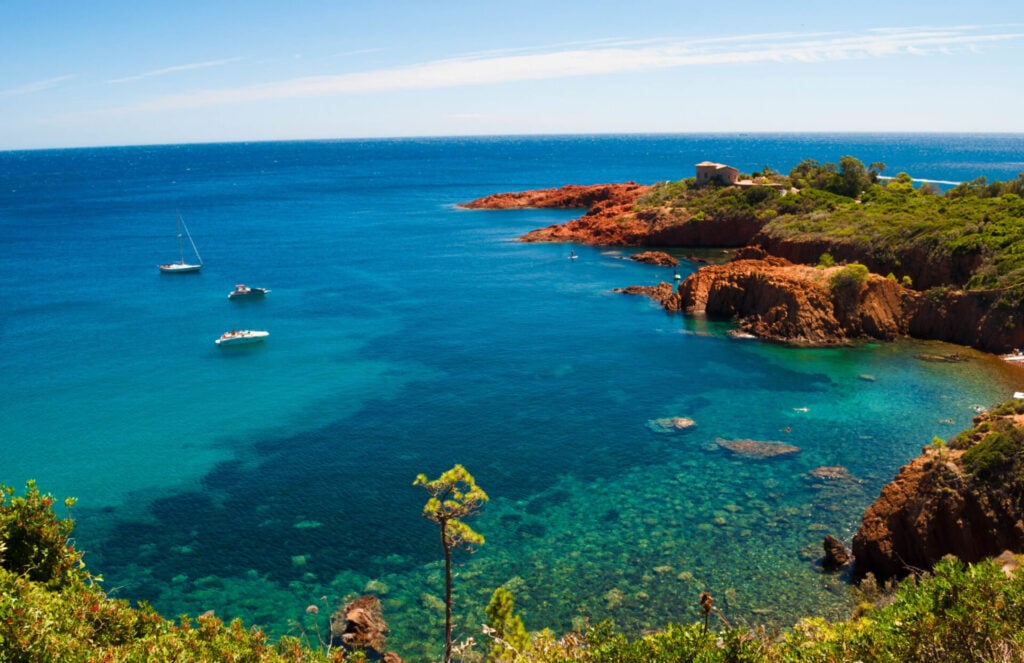
During a tour of Val d’Iris, a former iris plantation, now a biodynamic vineyard, we see how the famous rosé wines of Provence, along with equally eminent whites and reds, are made from fields of vines, punctuated by rows of trees, orchards and wildflowers to help with biodiversity.
A flock of Ouessant sheep fertilise the vineyards, the smaller breed chosen so they can squeeze under the vine branches as they graze. After strolling the vineyards with owner Anne Silberzahn and her collie Nash, we enjoy a very thorough wine-tasting session. We’re diligent to the last drop!
After six days, my joie de vivre is thriving. But if a retreat has to have an element of self-discovery to differentiate it from a holiday, my aha moment was realising my sociable side is still within me – it just needs coaxing out, and those beautiful walks, delicious food and entertaining people did just that.
Provençal Adventures is a member of The Global Retreat Company. Visit the site here: theglobalretreatcompany.com/provencal-adventures
The provence retreat offers five nights’ full board, from £1,250 (Ð6,000) pp, including transfers and activities

